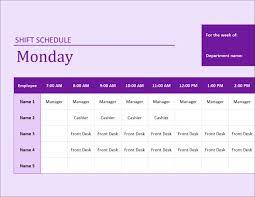
The Importance of a Well-Organised Schedule
A schedule is a fundamental tool that helps individuals manage their time effectively and stay organised. Whether it’s for work, study, or personal activities, having a well-organised schedule can make a significant difference in one’s productivity and overall quality of life.
One of the key benefits of maintaining a schedule is that it allows you to prioritise tasks and allocate time for each activity. By planning your day, week, or month in advance, you can ensure that important deadlines are met and that you have enough time to focus on essential tasks.
Furthermore, a schedule helps reduce stress and anxiety by providing structure and clarity to your day. Knowing what needs to be done and when can alleviate the feeling of being overwhelmed and help you approach your tasks with a clear mind.
In addition, a well-organised schedule can improve time management skills and boost efficiency. By breaking down larger tasks into smaller, manageable chunks and setting specific time slots for each activity, you can work more productively and avoid procrastination.
Overall, having a well-organised schedule is essential for achieving your goals, staying on track with your commitments, and maintaining a healthy work-life balance. Whether you prefer digital calendars, planners, or simple to-do lists, finding a scheduling system that works for you is key to maximising your productivity and success.
Top 5 Frequently Asked Questions About Creating and Maintaining an Effective Schedule
- How can I create an effective schedule?
- What are the benefits of having a schedule?
- How do I prioritize tasks in my schedule?
- What tools or apps can help me with scheduling?
- How can I stick to my schedule and avoid procrastination?
How can I create an effective schedule?
Creating an effective schedule involves careful planning and prioritisation of tasks to maximise productivity and efficiency. Start by identifying your goals and priorities, then break down larger tasks into smaller, manageable steps. Allocate specific time slots for each activity, considering your energy levels and peak concentration times. Utilise tools such as digital calendars, planners, or apps to organise your schedule and set reminders for important deadlines. Regularly review and adjust your schedule as needed to ensure it remains realistic and achievable. By establishing a clear structure and sticking to your planned routine, you can create an effective schedule that helps you stay on track with your commitments and achieve your desired outcomes.
What are the benefits of having a schedule?
Having a schedule offers a multitude of benefits that can greatly enhance one’s productivity and overall well-being. By having a structured plan in place, individuals can effectively prioritise tasks, allocate time for important activities, and ensure that deadlines are met. A well-organised schedule also helps reduce stress and overwhelm by providing clarity and direction in daily routines. Moreover, scheduling allows for better time management, increased efficiency, and improved focus on tasks at hand. Ultimately, maintaining a schedule is key to achieving goals, managing commitments effectively, and striking a healthy balance between work and personal life.
How do I prioritize tasks in my schedule?
Prioritising tasks in your schedule is essential for effective time management and productivity. One approach is to categorise tasks based on their urgency and importance, using methods such as the Eisenhower Matrix or ABC prioritisation. By identifying high-priority tasks that are both urgent and important, you can focus your energy on completing them first. It’s also helpful to consider deadlines, dependencies between tasks, and the impact of each task on your overall goals. Regularly reviewing and adjusting your priorities ensures that you stay focused on what matters most and make the most of your time.
What tools or apps can help me with scheduling?
When it comes to managing your schedule effectively, there are a variety of tools and apps available to help streamline the process. Popular scheduling tools such as Google Calendar, Microsoft Outlook, and Apple Calendar offer user-friendly interfaces for creating and organising events, setting reminders, and syncing across multiple devices. For those looking for more advanced features, project management apps like Trello, Asana, or Todoist provide task lists, deadlines, and collaboration options to enhance productivity. Additionally, time-tracking apps such as RescueTime or Toggl can help you monitor how you spend your time and identify areas for improvement in your schedule. With the plethora of scheduling tools and apps available, finding the right one to suit your needs can make a significant difference in managing your time efficiently.
How can I stick to my schedule and avoid procrastination?
Sticking to a schedule and avoiding procrastination can be challenging but is essential for effective time management. One key strategy is to break down tasks into smaller, manageable chunks and allocate specific time slots for each activity in your schedule. Setting realistic goals and deadlines can help you stay focused and motivated. Additionally, eliminating distractions, creating a conducive work environment, and prioritising tasks based on importance can all contribute to better adherence to your schedule. Regularly reviewing and adjusting your schedule as needed can also help you stay on track and make necessary revisions to accommodate unexpected changes. By implementing these strategies and cultivating self-discipline, you can enhance your productivity and minimise procrastination tendencies.
